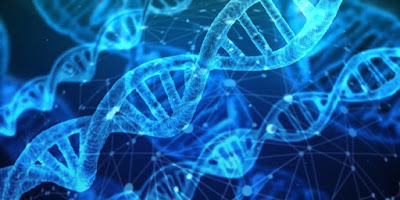Mutations not so Random After All
If you study on it, the dogma of randomness crops up frequently among believers in minerals-to-microbiologist evolution. That fits in well with their materialistic views and insistence in the totally unscientific, subjective, and absurd claim that things only appear to be designed but are not really. Otherwise, misotheists would have to admit that there is a Designer. Biblical creationists believe that this is the God of the Bible.
Materialists evosplain that through billions of Darwin years, mutations, and lotsa luck, we have the amazing diversity of life we see today. Of course, those mutations had to be beneficial according to their schemes. In reality, most are harmful (or at least neutral) and accumulating dents.
 |
| Credit: Pixabay / Gerd Altmann |
Technically, any alteration in a cell’s DNA sequence is a mutation. These changes can come from copying errors, from exposure to chemicals or radiation, or even from an infection. But genetic changes can also come from within the creature. Therefore, the term mutation can be misleading. Evolutionists claim that random genetic mutations are occasionally beneficial and can lead to novel traits—with many traits being profoundly complex—that somehow propel creatures into becoming new, evermore-sophisticated kinds of creatures.
To read the rest, put on your favorite jeans and take the trip over to "Mutation, Design & Randomness". Related: "Random Mutations and the Big Secret of Evolutionism".